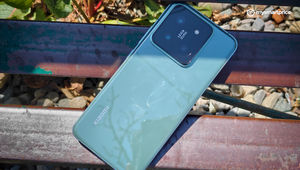
Apple’s in-house 5G modem chip will reportedly not be ready for the iPhone 17 series. According to the latest Bloomberg report, Apple will miss the deadline to release its in-house 5G modem chip by the spring of 2025. Quoting people familiar with the matter, the Bloomberg report states that Apple might now launch the 5G modem by the end of 2025 or early 2026. Coincidentally, that’s when Apple’s extended agreement with Qualcomm for the supply of 5G chips will also end. Notably, the Apple-Qualcomm partnership was due for termination in 2024 but Apple announced an extension until 2026 earlier this year, hinting at a setback of its own 5G chip manufacture. Let’s take a look at all the details of Apple’s 5G chip roadmap.
Apple Might Not Release Its 5G Modem Chip Until 2026

Apple’s plan to release its ambitious 5G chip seems to be experiencing further setbacks according to Mark Gurman’s latest report on Bloomberg. The report states that despite Apple’s acquisition of Intel’s smartphone modem chip business in 2019, the Cupertino-based tech giant is facing issues in making a 5G chip that matches or surpasses the performance offered by Qualcomm chips. Notably, Apple earlier set the goal to release its in-house 5G chip by 2024 but Gurman now claims that Apple is unlikely to launch it until the end of 2025 or early 2026.
According to the report, the development of the Apple 5G chip is still in the early stages and it might put the company far behind its competitors. Notably, the main concern is Apple’s decision to take on Intel’s failed project and its own hardware team stretched thin over multiple projects including the yet-to-be-release Apple Vision Pro. Apple’s hardware team is facing issues like mmWave support, rewriting Intel’s existing code, and integrating new features without breaking the existing ones. Additionally, Apple has to be careful to not infringe on any of Qualcomm’s patents despite acquiring 17,000 patents as part of the Intel deal.
As of now, Apple is likely to continue with Qualcomm’s Snapdragon X-series 5G modem chip until the iPhone 17 series. In case the company continues facing issues with the 5G chip, we can expect Apple to renew its contract with Qualcomm yet again once the current one ends in 2026. This certainly was not in Apple’s plans as the company sued Qualcomm back in 2017 for what it considered to be excessive fees and unfair royalties for modern chip technology. Apple then acquired Intel’s smartphone chip business and tasked it with making 5G chip for iPhone 11, which didn’t live up to Apple’s standards. It led to Apple dropping all charges against Qualcomm and entering a contract to use Snapdragon 5G chips in iPhones till 2026.
However, Apple is committed to developing its own in-house chip to reduce dependency on Qualcomm, just like it did with its M-series processors to phase out Intel processors from its Mac lineup. It remains to be seen when Apple finally achieves its goal.

















